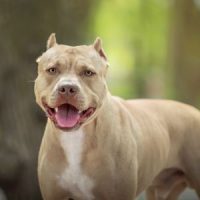Breed Restrictions in Apartment Buildings and Accountability

When a dog bite occurs in an apartment building, questions of liability can quickly arise. This is possible in all situations, including those where breed restrictions were in place.
Many Georgia apartment complexes have rules banning certain breeds, such as Pit Bulls, Rottweilers, or Doberman Pinschers, due to perceived aggression. These policies aim to reduce risk, but they also play a significant role in determining who is accountable for injuries when a bite incident occurs. To have the specifics of your case reviewed, connect with an Atlanta dog bite lawyer.
What Is a Breed Restriction?
Breed restrictions are policies set by landlords or property management companies that prohibit tenants from owning certain dog breeds. These rules are common in Atlanta and throughout the country. The rationale is to protect other tenants and limit the property owner’s liability.
While these restrictions may seem straightforward, they are not always strictly enforced. Some tenants may keep prohibited breeds without management’s knowledge, or exceptions may be made unofficially. When a dog bite occurs involving a restricted breed, this can complicate the issue of who is financially responsible for medical bills, lost wages, and emotional trauma.
Who Is Liable After a Dog Bite in a Restricted Breed Scenario?
In Georgia, dog owners are generally held liable if their animal causes harm and the owner knew or should have known the dog was dangerous. If the bite occurs in a building with breed restrictions, liability may extend beyond the pet owner. Here’s how:
- Pet owner responsibility. If a tenant keeps a dog in violation of the lease and that dog injures someone, the tenant may be found responsible for breaking the rules and knowingly housing a potentially dangerous animal.
- Landlord or property manager accountability. Should the landlord be aware of a restricted breed on the property and nothing was done to remove the animal or enforce the policy, they may share liability. This is especially true if the animal had previously shown aggressive behavior or the landlord failed to act on complaints.
- Insurance issues. Some renters’ insurance policies exclude coverage for certain breeds, and apartment complex insurance may also deny claims involving prohibited animals. This can make it more challenging for injury victims to recover compensation, making legal guidance essential.
Victims of dog bites in Georgia apartment buildings shouldn’t assume the process will be straightforward. Breed restrictions add another layer of complexity, but they can also be a key factor in securing financial support.
A skilled Atlanta dog bite lawyer can investigate the circumstances surrounding the attack and determine whether breed restrictions were in place. Legal professionals can also help identify all possible avenues of compensation, which is key to recovery when insurance coverage is disputed or denied.
Are you healing after being attacked by a dog that shouldn’t have been allowed on a local property? Whether the dog was a banned breed or the landlord failed to enforce their own policies, you may be entitled to compensation. Reach out to the attorneys at Zagoria Neely Injury Attorneys. Contact us today.
